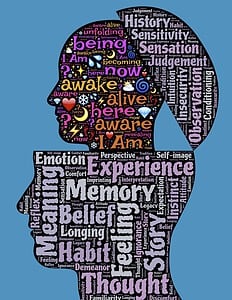
The folks over at Scientology probably know much about the urge of life to live. Urges and drive are the notions invoked by Scientologists to infer the foundational principles that animate humans. The urge to survive underlies the principles of their teaching, the Eight Dynamics.
A No-Brainer?
Some, including me, think this case is a no-brainer. But few moral or ethical teachings of faith start their conjecturing with this premise. The urge to live and survive seems to be too humanistic a perspective to build a Christian, God-centered theology on top of. Scientology, say some, is not exactly Christian.
I am not a Scientologist, nor am I a traditional Christian. I am a naive realist, a neo-pragmatist, and – as a nominal Christian – an agnostic. I am a soulmate of William James, Paul Tillich, and Richard Rorty at best. However, the position that life displays an urge to live is a good start to wonder. Academics, scientists, thinkers, etc., still do not have a rock-solid, commonly shared definition of life, so urges are very tangible to me.
Talking about urges inherent in living beings is not a definition of life, for sure. But before postulating a God or human rights, it seems to make sense to recognize that all living, sentient beings are grounded in an urge to live. Yet, neither God nor Mother Nature provides for sentient beings to be just herbivores.
Carnivore or Herbivore
Carnivores usually do not feed on their species. The urge to survive makes itself felt in the individual for its own sake, as well as for the sake of kin and, consequently, the extended species. In other words, humans do not care because they are nice. Humans are nice because they are compelled to care due to the urge to survive. Human niceties are just the cherry on the cake. Most of the time, sentient carnivores like humans know better than to destroy themselves.
However, mistaken political calculations possibly leading to the demise of humankind are not to be trifled with.
The urge to survive animating all humans harbors a conundrum nevertheless. ‘Live and let live,’ the old Stoic proverb, looms on the horizon now as it implies a tension between naturally favoring ourselves and yielding to the needs and wants of others as well. Christianity has its version of such a proverbial truth in the biblical command to ‘love yourself as your neighbor.’ Our lives are seemingly endless endeavors to work out tensions. ‘The best never rest.’
How, where, and when do tensions then show up? Everywhere! I mean, there is no time when they do not summon, compel, or force us. “‘”I am hungry.” “Who is she?” “What does he want?” Since no man is an island, the list is long and goes on and on.
Tango Anyone
Some say it is all about balance, others prefer to invoke the scene of a tango. None, perhaps, can be argued with.
I have read philosopher Georg Wilhelm Friedrich Hegel, psychoanalysts Jacques Lacan and Jessica Benjamin, and many other notable authors over the last few decades. G.W.F. Hegel, as interpreted by Alexandre Kojève, J. Lacan and J. Benjamin stand out to me today. Hegel, like a few others, spoke about the dynamic of thesis, antithesis, and synthesis. But he also spoke about the tension of getting recognition between two persons in his hard-to-read Phenomenology of Spirit. A. Kojève made that convoluted text of Hegel’s understandable to commoners like me and many others. Lacan brought awareness to the mirror stage of a child’s development and Benjamin ran with these and the insights Kojève provided, embedded Hegel into psychoanalytics, and broke new ground when she wrote about domination and submission in her seminal book The Bonds of Love.
So, what is the Point?
Well, while we all may be well aware of our urge to survive – to the point of needless to say—we may be less aware of our insatiable and unquenchable urge to be recognized by others. Our survival as individuals can and is taken for granted nowadays. But unbeknown to many, our urge for recognition plays out in day-to-day life more intensely than ever. I, me, and myself. We cannot help it, it is natural to privilege ourselves. While priviledging others comes only second, we know that this stance cannot be avoided because we cannot live without the recognition of the others. Thus, we do not need to constantly be reminded of unselfishness by pesky moralists who are in denial of themselves.
https://aeon.co/essays/the-philosophical-legacy-of-alexandre-kojeve
Hegel was able to make a most significant effort by recognizing as critical the tricked-out issue of mutual recognition – which cannot, however, be addressed sufficiently by philosophy alone. Hegel’s line of thinking, while claiming that paradise on Earth is possible if not inevitable, does not show that all people come to mutual recognition and peace. Masterly elites will still form, and the count of their members will be sufficient to satisfy individual members’ needs for mutual recognition, leaving behind an underclass of struggling bondsmen.
St. Augustine
Unresolved, perhaps even unresolvable tensions persist. Us versus them. Me versus you. What is wrong with us? People experience conflict within themselves and that makes many – but not all and not at all times – very uncomfortable. St. Augustine, bishop of Hippo in ancient times, had words for that, words that made Christianity the force it still is today. Augustine conjured up the notion of Original Sin.
What does psychoanalysis contributes to alleviate the conundrum?
You have studied philosophy and theology and psychology and are very knowledgeable about what Augustine, bishop of hippo, had to say about love and sin. I am writing a blog post about mutual recognition based on Hegel’s phenomenology of spirit as viewed through the eyes of Alexandre kojeve as well as the writings of jessica benjamin in her book the bonds of love. please contrast for inclusion in my blogpost the views of Augustine and hegel and benjamin about the experience of conflict that humans commonly have.
Augustine and Hegel offer contrasting views on human conflict and recognition that can provide interesting insights for your blog post on mutual recognition:Augustine’s perspective on conflict stems from his understanding of sin and disordered love. For Augustine, human conflict arises from our fallen nature and misdirected desires. He argues that humans are apt to sin through wrongly ordered loves directed toward self-love rather than love of God and neighbor. This self-centeredness leads to conflict as people pursue their own interests at the expense of others.In contrast, Hegel sees conflict as a necessary part of the dialectical process of mutual recognition between self-consciousnesses. For Hegel, self-consciousness can only fully realize itself through recognition from another self-consciousness. This process involves a struggle as each seeks to assert itself while also acknowledging the other. The conflict is productive, leading to higher forms of self-awareness and social relations.Jessica Benjamin builds on Hegel’s ideas of recognition but emphasizes the intersubjective nature of human development. She argues that mutual recognition between subjects is crucial for psychological growth and overcoming domination in relationships. Benjamin sees conflict as arising from the tension between asserting one’s own subjectivity and recognizing the other as a separate subject.Key contrasts to highlight:
- Source of conflict:
- Augustine: Disordered love and sin
- Hegel/Benjamin: Necessary struggle for recognition
- Resolution of conflict:
- Augustine: Reordering loves toward God and neighbor
- Hegel: Dialectical synthesis leading to mutual recognition
- Benjamin: Maintaining tension between self-assertion and mutual recognition
- View of the self:
- Augustine: Fallen and in need of divine grace
- Hegel: Developing through dialectical relations with others
- Benjamin: Formed through intersubjective recognition
- Goal of human relations:
- Augustine: Love of God and neighbor
- Hegel: Mutual recognition and social harmony
- Benjamin: Intersubjective recognition while maintaining individuality
While Augustine emphasizes the need for divine grace to overcome human conflict, Hegel and Benjamin focus more on the interpersonal dynamics of recognition. However, all three thinkers highlight the importance of moving beyond pure self-interest to acknowledge and engage with others, which could be a fruitful point of connection in your analysis.
In the context of mutual recognition and conflict, the views of Axel Honneth offer significant insights that complement and contrast with those of Augustine, Hegel, and Jessica Benjamin.
Axel Honneth
Honneth, a contemporary philosopher from the Frankfurt School, extends Hegel’s theory of recognition by emphasizing the role of mutual recognition in shaping human identity and social justice. His theory posits that the experience of recognition is fundamental to the development of self-respect, self-esteem, and self-confidence. Honneth identifies three forms of recognition:
- Love: Recognition in intimate relationships, which provides the basis for self-confidence.
- Rights: Legal recognition, which affirms individual autonomy and self-respect.
- Solidarity: Social recognition, which supports self-esteem through community and social value.
Honneth argues that social conflicts often arise from experiences of disrespect or misrecognition, which hinder individuals’ ability to develop a positive self-identity. He believes that achieving mutual recognition can transform conflicts and promote social justice by addressing these underlying issues of disrespect and misrecognition.
Contrasts and Comparisons
Source of Conflict
- Augustine: Conflict arises from disordered love and sin.
- Hegel: Conflict is a necessary part of the dialectical process of mutual recognition.
- Benjamin: Conflict stems from the tension between asserting one’s subjectivity and recognizing the other.
- Honneth: Conflict results from experiences of disrespect and misrecognition.
Resolution of Conflict
- Augustine: Reordering loves towards God and neighbor.
- Hegel: Achieving a higher synthesis through the dialectical process.
- Benjamin: Balancing self-assertion with mutual recognition.
- Honneth: Transforming social structures to foster mutual recognition and address disrespect.
View of the Self
- Augustine: The self is fallen and in need of divine grace.
- Hegel: The self develops through dialectical relations with others.
- Benjamin: The self is formed through intersubjective recognition.
- Honneth: The self is shaped by experiences of recognition in intimate, legal, and social contexts.
Goal of Human Relations
- Augustine: Love of God and neighbor.
- Hegel: Mutual recognition and social harmony.
- Benjamin: Intersubjective recognition while maintaining individuality.
- Honneth: Achieving social justice through mutual recognition and addressing disrespect.
Conclusion
Incorporating Honneth’s views into your blog post will provide a comprehensive understanding of mutual recognition and conflict. His emphasis on the role of recognition in shaping identity and promoting social justice offers a modern perspective that aligns with and expands upon the ideas of Hegel and Benjamin. This inclusion will enrich the discussion by highlighting the importance of addressing disrespect and misrecognition in transforming conflicts and achieving mutual recognition.
Common to all social and political notions of recognition is the shift from an atomistic to an intersubjective, dialogical understanding of the individual. Because our identity is shaped precisely through our relations to others, our being recognized by them, feelings of self-worth, self-respect, and self-esteem are possible only if we are positively recognized for who we are.




